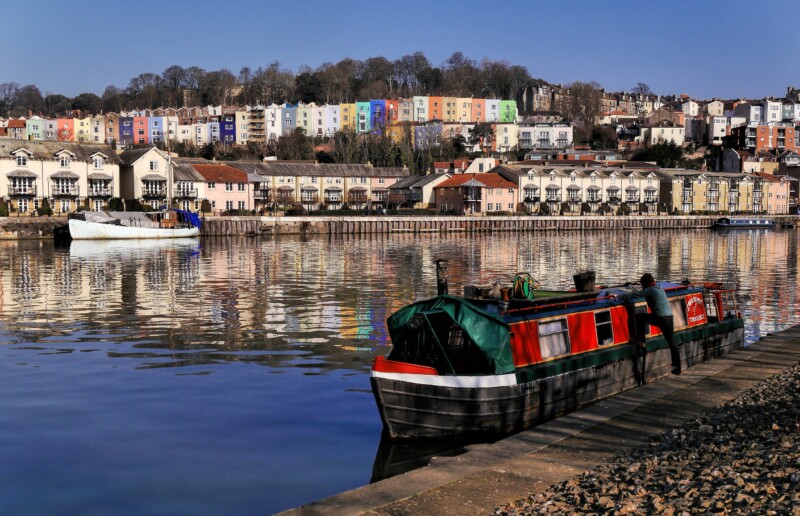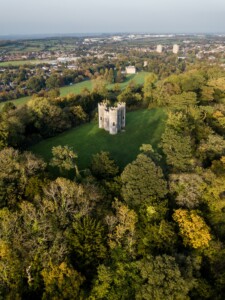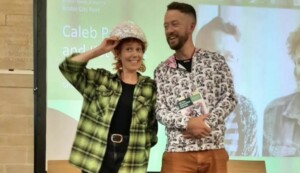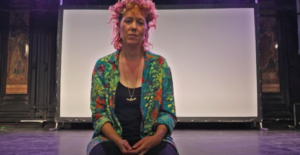Everything Comes From Somewhere Bristol City Poet Kat Lyons

Share this
Bristol City Poet Kat Lyons reflects on Bristol's charter, history and evolution in a new poem celebrating Bristol 650.
Everything comes from somewhere. Someone dreamed
a bridge across a gorge, set the first stone,
stepped out in 1864
onto what had once been empty air.
When evening stretches long as a lazy cat,
Bristol grows restless,
wanders through its library of centuries. Calls you to join it
shuffling through sheaves of years.
Cross the road and slip
into its scrapbook, flick through
anniversaries enshrined in architecture, blue plaques,
opened doors, emptied plinths.
Untie the ribbon on the charter, 650 years unroll. Parchment holds
a painted king, a gold-leaf crown. A royal seal
stamps a border. Redraws a county. Snips a city out
and sends it off to seek its fortune on its own.
Bristol grows in concentric rings. Industry expands,
seeds quarries in the Kings Wood, forests
of houses in the Fish Ponds. Villages wait
to be suburbs; for factories and terraces to clasp hands.
Bristol swaggers into the 18th century, postures
in its expensive suit. It smells of sugar, cocoa and tobacco.
Plantation-picked, ocean fresh.
This Bristol leans from elegant Georgian windows,
dispenses charity with a winning smile.
It hasn’t yet learned to dance without crushing others’ feet.
It ignores you when you point out the sweat-stains, whistles hymns,
jingles coins in its pockets to drown out the rattle of bones.
Head into the 19th century night. Follow
the stuttering flames of the linkboy’s torch. Arrive in 1817, gaze up
at the first streetlamp. Bristol shades its eyes,
and squints into an incandescent future.
Bristol marks its place. Curates the world, displays it
neatly labelled under glass. The city is a museum.
The museum is a pantry. 200 years of learning
preserved like jam. Unscrew a jar. It still tastes fresh.
Watch – incendiary bombs flicker through the trees,
ghost buildings gather at dusk. The Blitz
gives Bristol the face of an unlucky boxer. In Castle Park
you stumble over rubble until the moment passes. Sirens soften into
laughter, smoke drifts from barbecues and 75 years ago
a fresh wind rushes in.
Turn to greet it. Eyes still bright from Caribbean sun
see Bristol for the first time. The city inhales
their labour, refuses their handshake.
Families hunch their shoulders. Hunker down. Cautiously unfurl
new shoots, find hairline cracks in concrete faces, slowly
spread community, grow roots.
At a bus stop in the rain the record skips
back 60 years. Let the buses pass you by. Stand
with your West Indian neighbours as they walk
through spring rains, summer heat
with heads up, with aching feet from double shifts,
with small hands tugging at skirt hems, friends in step, eyes raised until
they walk right through the colour bar and
onto the bus in their new conductors’ uniforms.
Bristol buys a ticket, takes a seat. Listens and retunes its ears
to 98 FM. Light 15 candles for Ujima,
for 15 years of sailing Bristol airwaves. A lifeboat
breaking through storms of white noise and silence.
Bristol coughs and clears its lungs. It’s older now, it watches
where it’s going, steps more lightly. It turns
to next century’s calendar, it points
to the flick-book of blank pages. It tells you-
Close your eyes.
Dream a bridge.
Now step out.
Listen to Kat’s poem on Soundcloud.
This article appears in Bristol 650: Essays on the Future of Bristol, a book bringing together essays from over 30 contributors, addressing some of the challenges the city faces and sharing ideas about how we might meet them. From dealing with the past, the future of social care, culture and housing to building a city of aspiration, the book looks to promote learning about the future of Bristol and encourage new ideas to come forward.
Free copies of Bristol 650: Essays on the Future of Bristol will be available at selected Festival of the Future City events in October 2023, or you can find articles featured in the book at bristolideas.co.uk/bristol650book.




